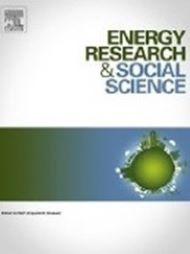Fast track to failure? Energy transition minerals and the future of consultation and consent
Energy transition mineral and metals (ETM) are being widely discussed for their utility in combating climate change. However, their contribution with respect to social and environmental impact does not feature prominently in contemporary debates. In this paper we present findings showing the extent to which the world’s ETM projects will intersect with Indigenous Peoples’ and Peasant lands – the lands of people who under existing United Nations-level declarations have explicit consultation and consent rights. Our results suggest that the majority of the world’s ETM projects are located either on or near Indigenous Peoples’ or Peasant lands with adverse conditions for human rights-compatible permitting, consultation, and consent. The implications are profound in terms of understanding the basis on which agreed international safeguards may be diluted in the rush to meet market demand, and that the extent to which the future supply of ETMs will exacerbate social inequalities in already vulnerable locations.
Language: English
Publisher: Energy Research & Social Science
Region: Australia
Type: Article
CITATION
Owen, J.R., Kemp, D., Harris, J., Lechner, Alex. M., Lèbre, Éléonore. (2022) Fast track to failure? Energy transition minerals and the future of consultation and consent, Energy Research & Social Science, vol. 89, p. 102665. https://doi.org/10.1016/j.erss.2022.102665

